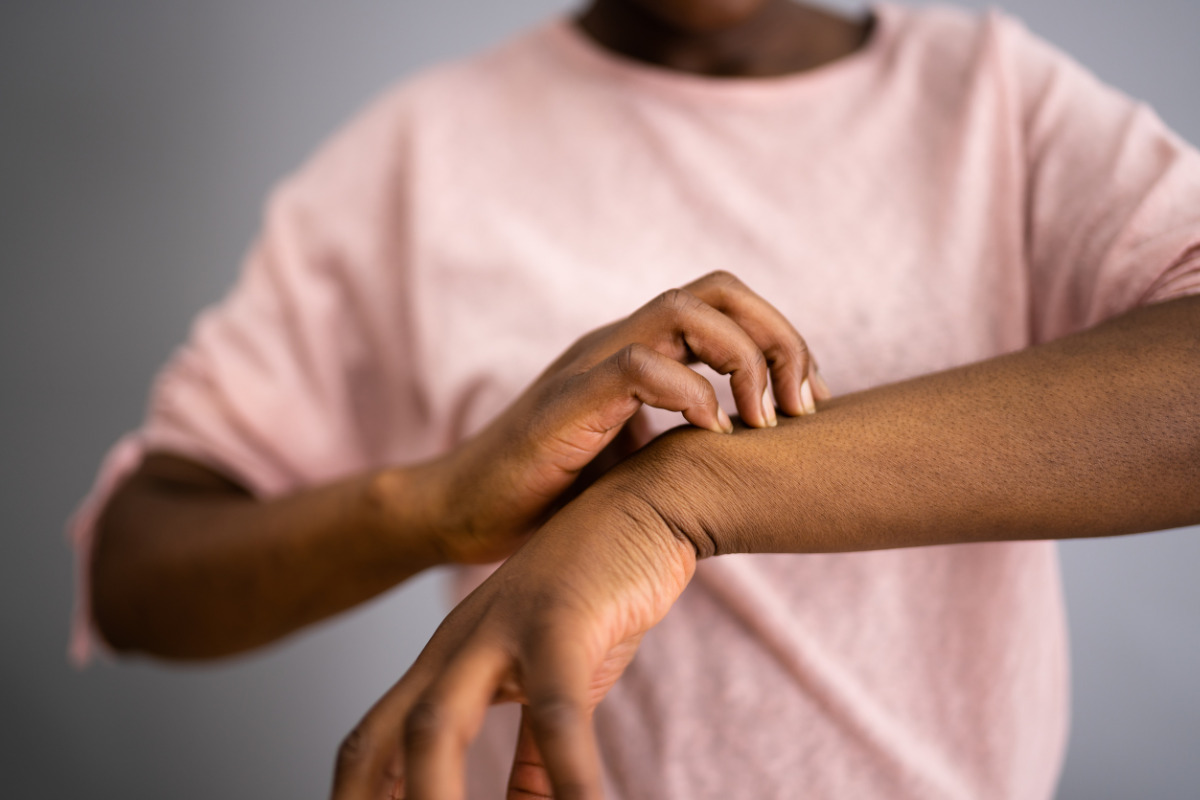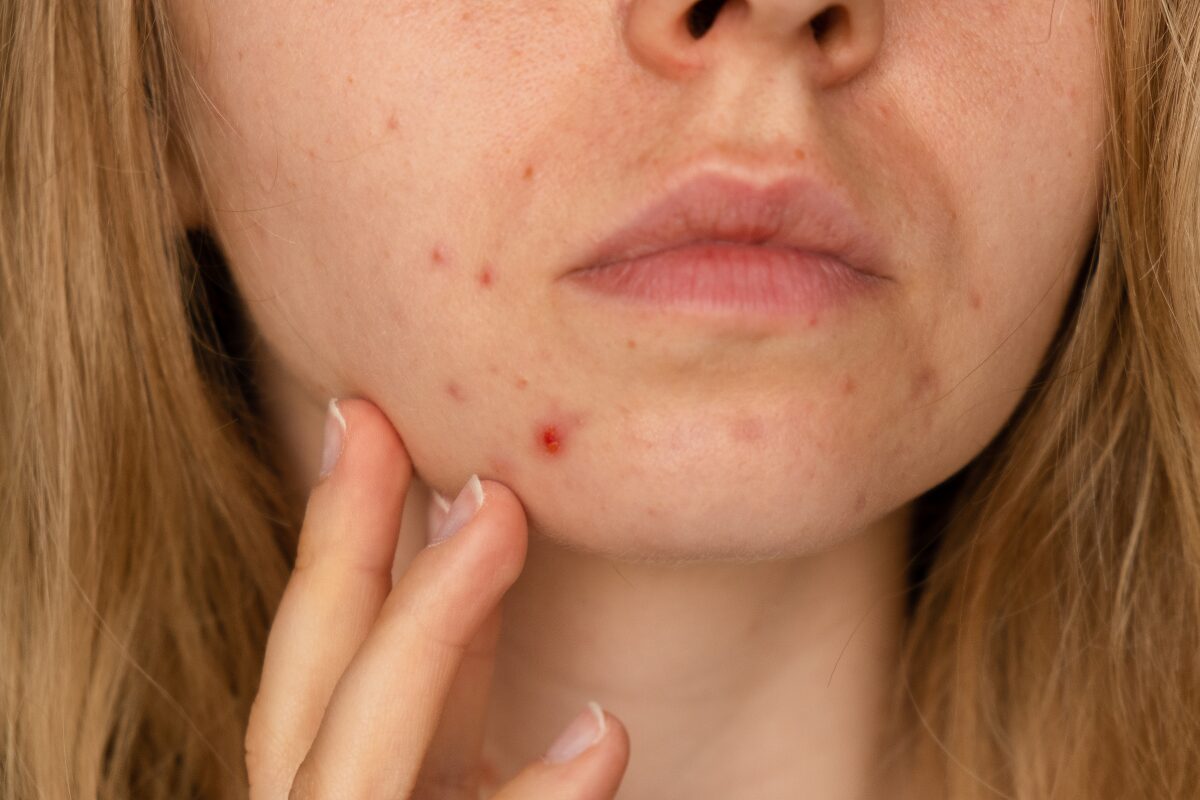What Causes Itchy Skin During Menopause?

You might be prepared for hot flashes around menopause, but you may not have heard about the itchy skin that can result from shifting hormones in midlife.
Itchy skin, medically known as pruritus, is a common complaint among menopausal women. It can range from a mild annoyance to a relentless, distressing sensation. To keep skin happier and healthier, it’s essential to understand why it occurs.
Hormonal Changes and Itchy Skin
The primary culprit behind itching is the hormonal rollercoaster that women experience around menopause. Estrogen, a hormone that plays a crucial role in maintaining skin health, decreases significantly during menopause. As estrogen levels decline, the skin produces less natural oil. It also produces less collagen, a protein that gives skin strength and elasticity. Together, these changes lead to a loss of the skin’s normal moisture barrier and a loss of elasticity.
The research about the effect of menopausal hormone therapy is mixed, with some showing that it improves skin hydration and others no effect.
Lifestyle Changes to Improve Skin Health
Maintaining healthy skin during menopause starts with making some lifestyle adjustments.
- Stay well-hydrated, because dehydration can exacerbate skin dryness and itching. Adult women should aim to drink at least 2.5 L (85 oz) of water per day.
- Consume a balanced diet rich in essential nutrients, including vitamins A, C, and E, to promote skin health. Don’t forget healthy fats from olive oil, nuts, salmon and flaxseed.
- Avoid hot showers and opt for lukewarm water to prevent further drying of the skin, as hot water strips away natural oils.
- Try a colloidal oatmeal bath to soothe itching skin.
- Wear sunblock formulated for sensitive skin every day to protect dry skin from being injured by UV rays.
Skincare Products to Relieve Itchy Skin
Choosing the right skincare products can make a significant difference in managing itchy skin. Opt for gentle, fragrance-free moisturizers and cleansers specifically designed for sensitive skin. These products can help lock in moisture and prevent further drying of the skin. Moisturize after patting dry from a shower or bath to lock in as much moisture as possible.
Ingredients like hyaluronic acid and ceramides provide intensive hydration. Many people with dry skin like to use natural products like coconut oil for even more hydration.
Itchy Skin and Allergies
Sometimes, allergies can exacerbate itching during menopause. It’s also possible to develop new allergies around menopause which could manifest in a skin reaction.
Pay close attention to any new skincare or laundry products you’ve started using, as these might be triggers. Fragrances, dyes, and preservatives in cosmetics and detergents are also common culprits. Consider any dietary sensitivities as well. Consult an allergist if you suspect allergies are contributing to your itchy skin, as they can perform tests to identify specific allergens and recommend suitable alternatives.
When to Seek Medical Help
While menopausal itching is often manageable with lifestyle changes and home remedies, there are instances where medical intervention is necessary. If your itching is severe, persistent, or accompanied by other concerning symptoms such as skin changes, lesions, or unexplained weight loss, it’s crucial to consult a healthcare professional. They can conduct a thorough evaluation to rule out underlying medical conditions and provide appropriate treatment options.
If your itching includes areas around the vulva and vagina, it’s also important to seek medical attention, infections, dermatological conditions, and estrogen-related changes can all lead to itching around the genitals. These situations are well-managed with specific treatments that your healthcare provider can guide you in choosing.
While skin changes are a normal part of menopause and aging, you don’t have to live with itchy skin. Making lifestyle adjustments, choosing gentle products, and seeking medical advice when necessary can significantly improve your comfort.
Remember, you’re not alone in this journey, and Midday is here with the resources you need, when you need them. For more information and support, including a range of options for menopause symptom relief, download Midday from the App Store or visit us at Midday.Health.
Sign up for more unique women’s health content
By submitting this form, you agree to the Lisa Health Privacy Policy and Terms of Use


